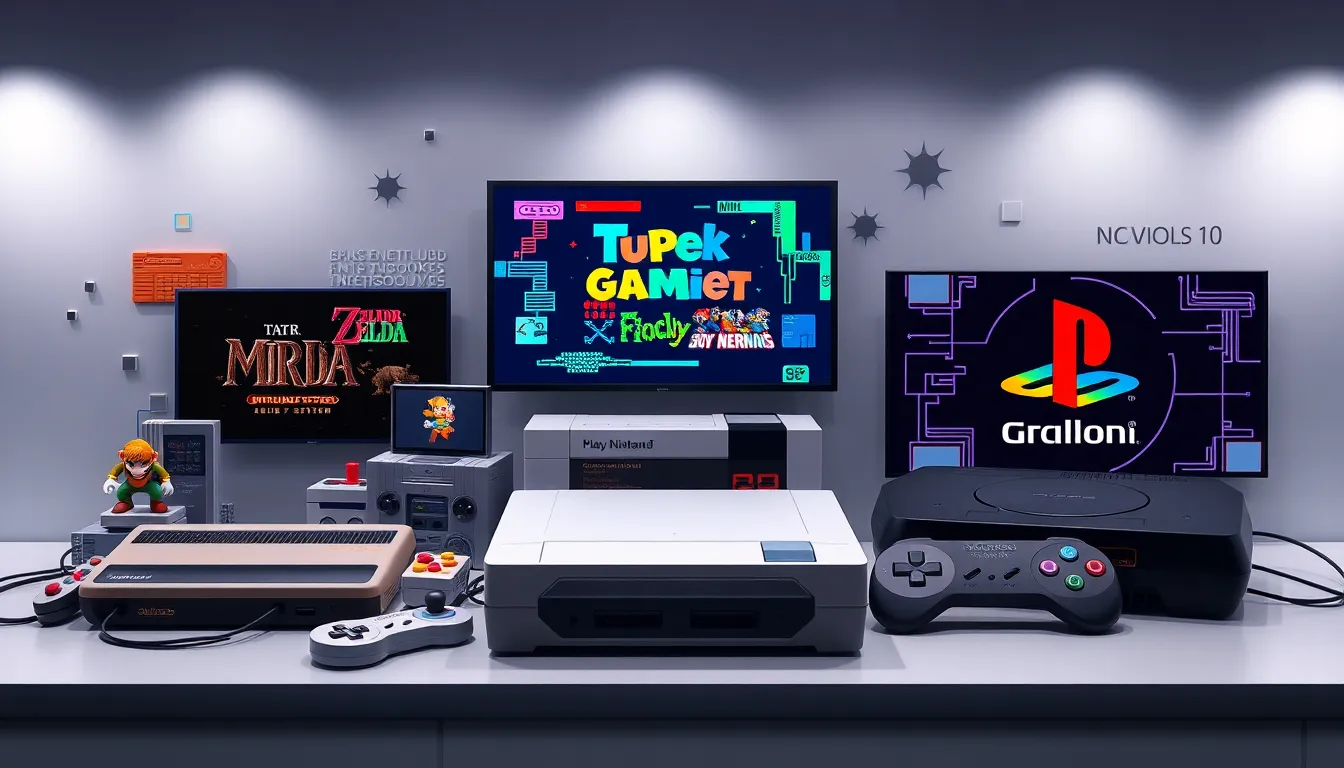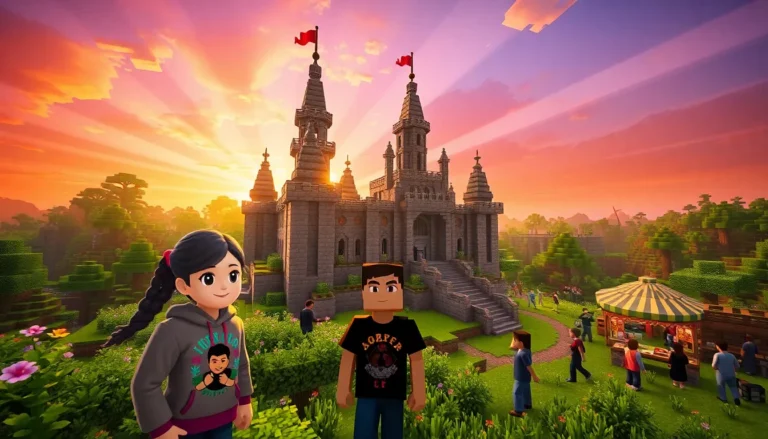Table of Contents
ToggleIn the vast universe of gaming, there’s more than just high scores and epic quests: there’s a narrative woven through pixels and polygons that has captivated audiences for decades. Picture a world where consoles were as large as your coffee table, evolution was a mere software update away, and communities thrived not in person but within the vast realms of cyberspace. Welcome to “Ramblings Of A Gamer,” where you’ll discover the milestones of gaming’s past, the vibrant communities that cultivate it today, and an exhilarating peek into the future of play. Buckle up and get ready for a whimsical ride through the ever-changing landscape of gaming. Trust us: it’s more enlightening than that 3-hour epic boss fight.
The Evolution Of Gaming: A Journey Through Time

The story of gaming is one of continuous innovation. From the humble beginnings of Pong in the 1970s to today’s hyper-realistic graphics, gaming has undergone a transformation that’s almost like watching a toddler grow into a superhero. Let’s investigate into some of the key milestones that have shaped the medium, making it what it is today.
Key Milestones In Video Game History
Gaming’s evolution can be mapped by groundbreaking consoles and iconic titles. The Atari 2600 was a game-changer, introducing the world to home gaming. Fast forward to the release of the Nintendo Entertainment System (NES) in the 1980s, and suddenly, gaming became synonymous with legendary franchises like Mario and Zelda. These games didn’t just entertain: they created cultural phenomena that still thrive.
The 90s brought us 3D graphics and the inception of the PlayStation, forever altering the landscape. Gamers started to experience narratives that were immersive and rich. Then came the dawn of online gaming, hello, dial-up., which led to massively multiplayer online role-playing games (MMORPGs) that allowed thousands to quest together in a singular, expansive universe.
Impact Of Technology On Gaming Development
Technology has been the backbone of gaming evolution. Technological advances have always driven the next generation of consoles and graphics. The leap from 8-bit graphics to 4K resolution didn’t just represent an aesthetic change: it reshaped game design fundamentally. Virtual reality (VR) is now a buzzword, capturing the imagination of developers eager to create experiences that go beyond traditional screens. Imagine diving into an open world where you are the hero, and trust us, that’s not science fiction anymore.
This continuous advancement leads gamers to expect more depth, realism, and engagement, creating an insatiable appetite for the next big thing.
The Rise Of Online Gaming Communities
Gaming isn’t just about playing: it’s about connecting with others, forming friendships, and building communities. Gone are the days when players were alone in their basements, talking to nothing but their screens. In the age of online gaming, social connection takes center stage.
Cultivating Connections: The Importance Of Community
Whether it’s through forums, social media platforms, or live-streaming sites like Twitch, gamers have carved out their own social spaces. Communities like these are crucial because they offer players the chance to share tips, tricks, and hilarious anecdotes from their adventures. Some friendships formed in these digital realms have stood the test of time, proving that connections made online can be just as meaningful as those made in person.
These communities provide solace and camaraderie, especially for those who may feel isolated in their offline lives. Being able to join a group that shares your passion transforms gaming from a solitary pastime into a shared, collective experience.
Fostering Inclusivity In Gaming Spaces
Today’s gaming communities are increasingly focused on inclusivity. Developers and players alike are advocating for spaces where everyone can feel welcomed, regardless of their gender, race, or skill level. Initiatives aiming for diversity are being championed, ensuring that new voices and characters enrich the storytelling and gameplay. This movement not only enhances gaming culture but also promotes acceptance and understanding across the board.
Games like “Overwatch” celebrate diverse characters, this isn’t just representation: it’s a powerful statement that everyone can be a hero in their own story. As a result, people feel empowered to engage, express themselves, and contribute positively to these spaces.
The Future Of Gaming: Trends To Watch
While the journey through gaming’s past is fascinating, what’s even more thrilling is where it’s headed. The future holds remarkable potential, driven by technology and an ever-evolving audience.
Emerging Technologies Shaping The Industry
Picture playing a game without a console. Cloud gaming services are set to redefine accessibility, allowing gamers to play high-quality titles from virtually any device with an internet connection. No more worrying about hardware upgrades. Also, advancements in artificial intelligence are paving the way for more intelligent NPCs (non-player characters) that learn from player interactions, making every gaming session uniquely interesting.
Also, augmented reality (AR) is also emerging, melding the virtual world with the real one. Games like “Pokémon GO” are only the tip of the iceberg when it comes to blending these realms. Expect even more adventurous games that enhance your real-world surroundings, imagine dodging virtual dragons while waiting for the bus.
Predictions For The Next Generation Of Gamers
As younger generations grow up with gaming ingrained in their lives, the expectations and aspirations they bring to the table will reshape the industry. They demand diversity and depth in narratives, immersive experiences, and empowering stories that represent their realities. Upcoming gamers will not just settle for graphics: they’ll crave meaningful adventures that echo their values and lives.
The gaming world will continue to become more dynamic and inclusive. Developers will listen more closely to feedback from their communities, resulting in games that resonate on multiple levels. Buckle up: the future of gaming is as exciting as a last-minute victory in your favorite multiplayer showdown.





